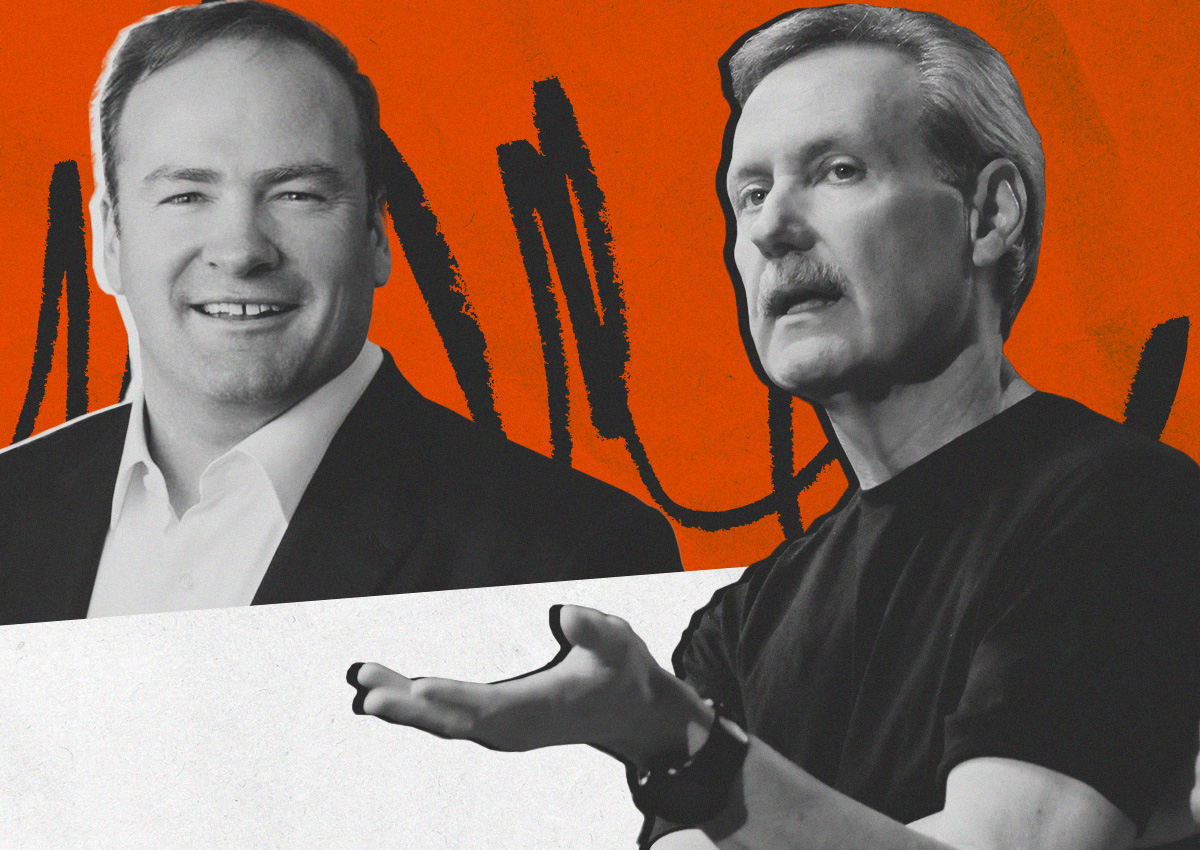Messi is showing that moving to MLS hasn’t diminished his motivation to perform

Shortly after Argentina won the World Cup, Argentine sports publication Diario Olé traveled to Paris for an exclusive interview with Lionel Messi. Among many topics, they discussed the emotional roller coaster that Argentina rode to the final, and whether Messi would represent his country at a sixth World Cup in 2026.
There were no questions about Messi coming to Major League Soccer because it was still unfathomable to most people at that time, but as the interview came to an end, one of the journalists said “Vamos por más” (“Let’s go for more”) as he shook Messi’s hand. Messi pinched his fingers together, and with a tired smile, replied, “¡No hay más!” (“There’s nothing left!”).
When Messi first came to Inter Miami, I doubted whether he would enjoy playing in MLS. My rationale was simple: Messi was accustomed to high-stakes football and playing for the game’s most important trophies. His teammates at FC Barcelona and Paris Saint-Germain were among the best players in the world.
I knew Messi would have an impact on the field, though. Even at 36 years old, he is still very much an elite-level player. He scored buckets of goals and was virtually unplayable throughout his 20-year professional career. That wasn’t going to change in MLS. But would he care?
How much emotional investment would he have after finally achieving a lifelong dream of leading a very talented Argentina team to the 2022 World Cup title? A year earlier, Argentina had won the Copa América, and Messi was instrumental in ending the national team’s 28-year drought without a trophy. With those titles, Messi completed football.
He has a record seven Ballon d’Or awards to his name, and no more major trophies left to play for. I wondered whether Messi would care as deeply about competing in MLS as he did in Europe. Would he tolerate the lower standard in the U.S. top flight despite being one of global sport’s ultimate competitors?
After 11 matches with Inter Miami, the answer is quite obviously, yes, Messi does care. His play thus far is all the evidence I need. He has willed Inter Miami to victory and clashed with his opponents, both verbally and physically. Messi has scolded his teammates for ill-timed passes, selfish dribbling or for failing to find him in parts of the field where he does his best work. He also told reporters that he’ll play on artificial turf, ending all speculation that he’d be selective in where he plays MLS matches.
Throughout his career, Messi has demonstrated an insatiable appetite for football. That has remained the same as he begins what is likely his final chapter in MLS.
“I came here to play, to continue enjoying football, which is what I’ve loved my entire life,” Messi told reporters during his first and only press conference to date on August 17. “I was very excited when I arrived. I was very happy and motivated to continue to earn positive results, the way that I have my entire career.”
Athletes like Michael Jordan, Kobe Bryant, Cristiano Ronaldo, and Messi are different because of their innate, and at times even toxic addiction to winning. It’s a switch that stays on no matter the level of competition or the stakes that are at play. That mentality rubs off on their teammates, who go from awestruck coworkers to high-performing teammates in an effort to keep pace with the superstar in their midst.
Inter Miami’s play has improved drastically with Messi wearing the captain’s armband. They went from winless in their 11 matches before his arrival to unbeaten in the 11 matches since he first joined them. Even for Messi, this current streak was unimaginable a few months ago.
“He’s the same player,” said Jordi Alba, who played with Messi both at Barcelona and now with Miami. “Leo is a very demanding person. He wants to win. He competes in every training session and in every match. It’s true that he just won a World Cup but he won’t change.”
When Messi signed with Inter Miami, the club was in last place in MLS’ Eastern Conference. They’re still near the bottom of the standings, but now they’re beating top teams in a push for a playoff spot. That wouldn’t have happened without Messi being all in. Inter Miami’s turnaround has led to a debate about Messi exposing the standard of play in MLS. His manager in Miami, Tata Martino, addressed it recently.
“With Leo playing here, and with everything that he represents, it makes MLS look better,” said Martino. “Whether this is a top league or not, if we compare ourselves to the top leagues in Europe, it’s evident that we’re far from that. Without a doubt. I’ve worked here before. It’s also true that I’ve seen some great players come to MLS under the same circumstances as Leo, and they haven’t had the same impact as him.”
Martino previously won an MLS Cup title with Atlanta United in 2018, so he’s familiar with American soccer culture and the league’s quality. He also coached Messi at Barcelona for one season and again with the Argentina national team. Those jobs have real pressure. The type of pressure and scrutiny that MLS, which isn’t even the most popular soccer league in the U.S., doesn’t have.
Martino has been asked several times about how the arrival of Messi, Sergio Busquets and Alba has changed Inter Miami. All three players have said that they’ve come to MLS to compete, while admitting that experiencing life in the U.S. was an attractive perk. The weather, the beaches and the Miami lifestyle can feel like a perpetual vacation, especially for millionaire athletes. For that reason, Martino said that in MLS, if you want to feel pressure, you’ll have to manufacture it.
“This league, and especially soccer in the United States, probably doesn’t have the same pressure that basketball, baseball and the NFL have,” Martino said on August 18. “(In MLS), the pressure comes from oneself. So when you find players who have so much experience and who still want to put pressure on themselves, who still want to compete and who still have the desire to win, well, it makes the job of any coach in this situation much easier. And that’s because they’re committed to our way of playing and they’re committed to being leaders when it’s time to drag the team towards a stretch of victories.”
Messi clearly loves the game, but he also understands the demands that come with being the best player on the planet. That’s real pressure, even if he is playing on a Saturday night in Frisco, Texas. Showing maximum effort during a mid-week MLS match sounds like the bare minimum, but for Messi, whose every move is scrutinized around the world, it’s the most important impact that he can have in MLS.
To no surprise, the business end of Messi’s U.S. adventure has also had an immediate positive effect. Sportico reported last week that Inter Miami is set to become one of the highest earning clubs in the world.
Inter Miami, according to the report, is projecting $200 million in revenue in 2024. That would more than triple the club’s earnings target prior to Messi’s signing. The brands associated with Messi, with Apple and with MLS, stand to gain plenty from the Argentine’s image in the U.S. But again, for all of this to work, Messi has to care on the pitch. If he wasn’t getting results and scoring highlight reel goals match after match, it could very easily be an “out of sight, out of mind” situation as he plays in a lesser league where the matches are locked away on a subscription platform.
Messi has the following and the credentials to change the perception of the league around the world. One way to do that is by taking Inter Miami games as seriously as he did a Barcelona-Real Madrid clásico or a World Cup qualifier with Argentina. It may sound absurd to someone on the outside, but it’s the only way Messi knows how to play the game: by putting every ounce of himself into it. His experience with Paris Saint Germain is maybe the lone outlier that highlights what he’s doing with Inter Miami even more. Messi was visibly uncomfortable in the French capital and was unable to help PSG finally win a Champions League title. He spoke candidly about that experience in August.
“When I left for Paris it was something that I didn’t want to do,” he said. “It was difficult, both from the sporting side and living in a new city. What’s happening now is the complete opposite.”
Messi’s happy in Miami and his play is reflecting that — in a positive way. His reasons for feeling more at home are quite elementary.
“It’s a city that has a lot of Latinos, which has made things easier, as well,” Messi said. Latinos are more demonstrative. They’re friendlier. They’re always showing their affection. That’s what I think is the most important thing. It allows you to really enjoy what you do. I’m happy. I’m enjoying this new stage of my career. I’m enjoying the experience of living in this country. It was something that I have always thought about. I didn’t know when I would do it, but now I’m enjoying this moment.”
First impressions are lasting and Messi’s introduction to North America was as good as it gets. He led Inter Miami to nine consecutive victories that included an inaugural Leagues Cup final win on August 19. He scored two goals in three consecutive matches to start the competition, and ended as the tournament’s top scorer with 10 goals and four assists.
Messi was influential once again in Miami’s 2-0 regular season win over Red Bull New York, this time as a substitute. He scored Inter Miami’s second goal late in the match, a beautifully taken goal that’s unique to Messi. Tired legs and an opponent in Nashville that sat back and defended for 90 minutes finally ended Inter Miami’s win streak on Wednesday night. But on Sunday against LAFC, in front of an A-list celebrity crowd in Los Angeles, Messi had two assists in Inter Miami’s surprising 3-1 win over the defending MLS Cup champions.
Messi didn’t come here to save MLS. That’s not why he signed with Inter Miami, an expansion team in its fourth season in one of the country’s most fickle sports markets. Messi isn’t here to carry a proverbial torch of any kind or serve as an ambassador for soccer in North America, either. We can give him that responsibility, but Messi’s focus remains solely on the field, particularly as he knows his playing days will eventually come to an end. But as long as Messi cares, his legacy will remain airtight.
“I like to play. I enjoy being on a pitch with a ball at my feet, competing, and practicing,” Messi told Apple TV’s Tony Cherchi last month. “I don’t know how much longer I’ll play but I’m going to try to make the most of this as long as I’m fit, and then we’ll see. I’ll have time to think about that, evaluate it and make a decision. Today the most important thing is to enjoy what I have left, whatever it may be, whether it’s a lot or little. I want to enjoy it to the fullest like I’m doing now because you can’t go back. I don’t want to regret anything.”
There’s nothing left for Messi to prove. But so far it appears Inter Miami has the right formula to keep him fully engaged in America.
(Top photo: CHRIS ARJOON/AFP via Getty Images)


